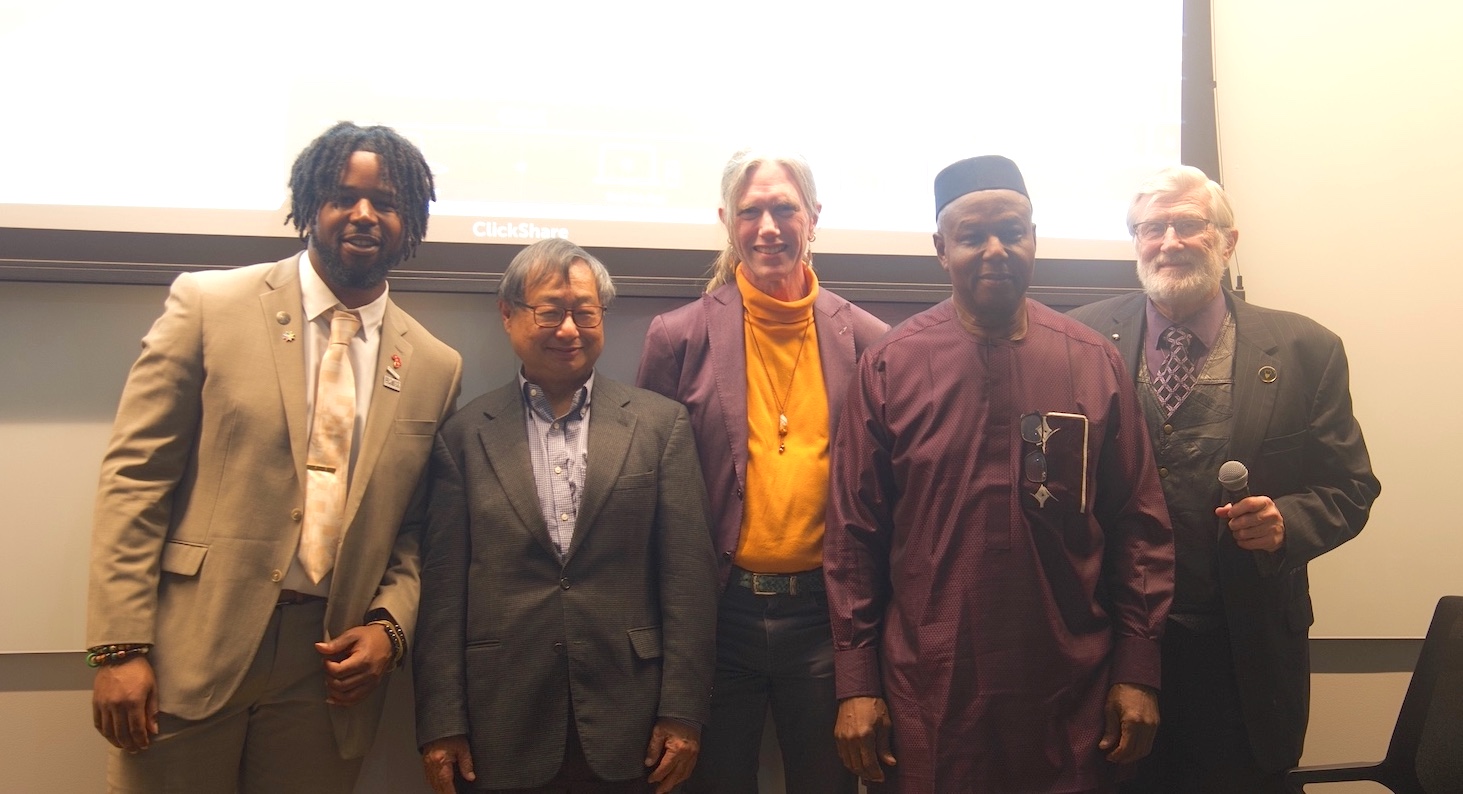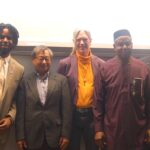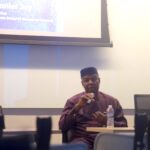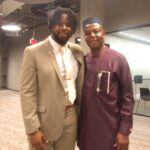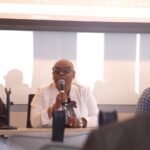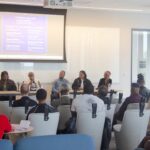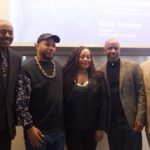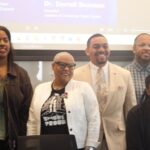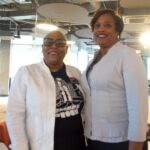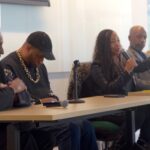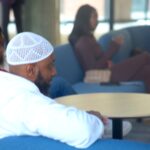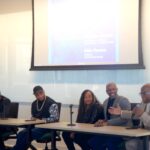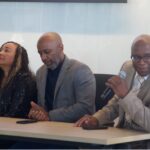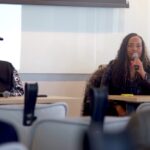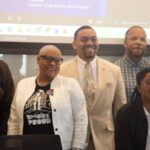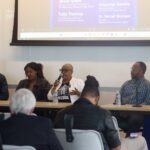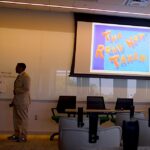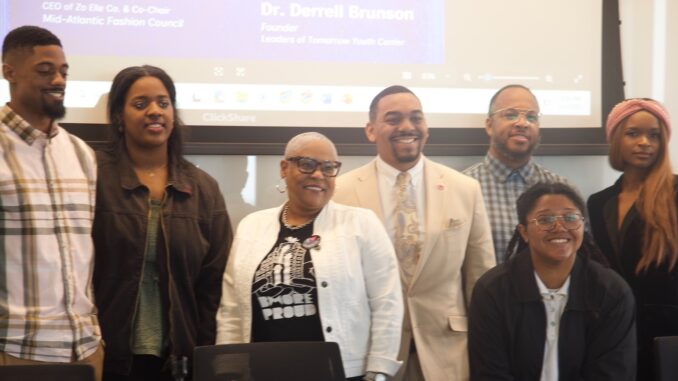
BALTIMORE – Coming together to brainstorm, suggest and learn, a multi-disciplinary group assembled for Chijioke Oranye’s afternoon panel “The Road Not Taken” at University of Maryland BioPark in Baltimore.
Topics ranging from youth incarceration and rehabilitation to legislation and business impact were discussed in different voices but with one purpose: To emphasize that people may travel different paths but can come together through understanding.
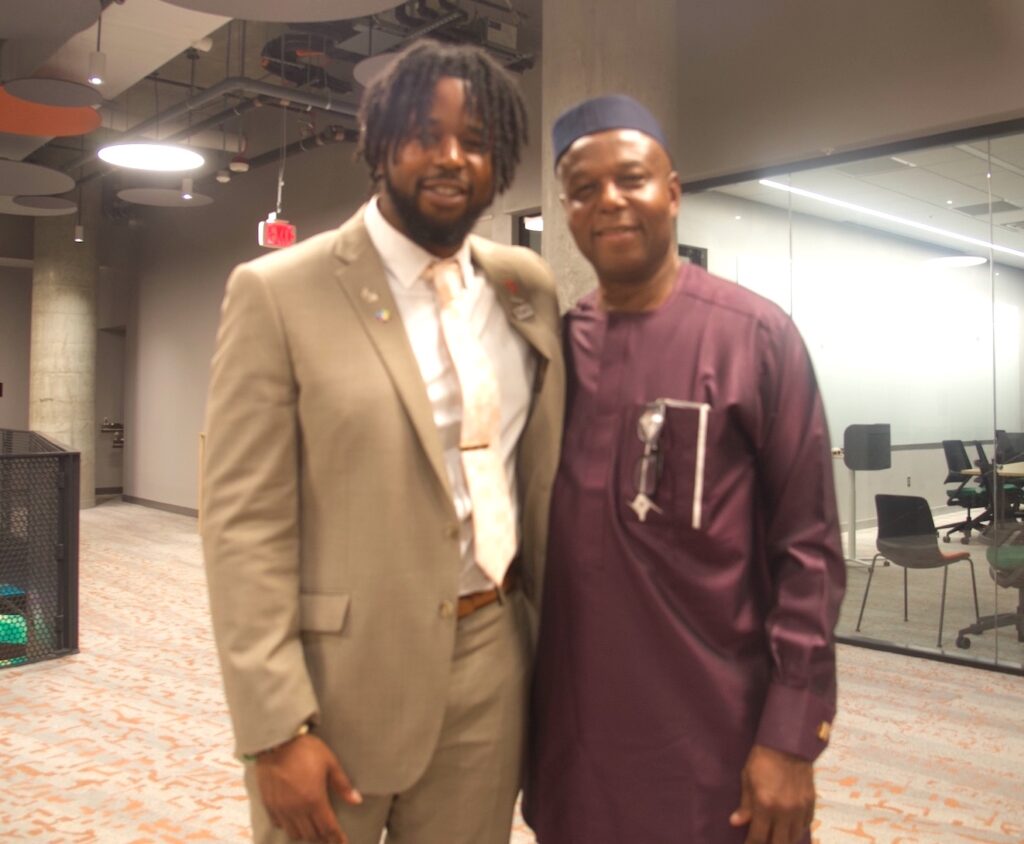
Chijioke Oranye is a person who studies people as well as classic literature, as the event name might suggest, and he’s even a poet who shared one of his own creations. But his talent may lie in enhancing the human dynamic.
His panels bring together professors, doctors and entrepreneurs in a most engaging grouping.
“This has so inspired me and I am so impressed with the people here,” said Dr. Daniel Jay, Dean Emeritus of the Tufts Graduate School of Biomedical Science. He made the trip from Boston to take part in the event.
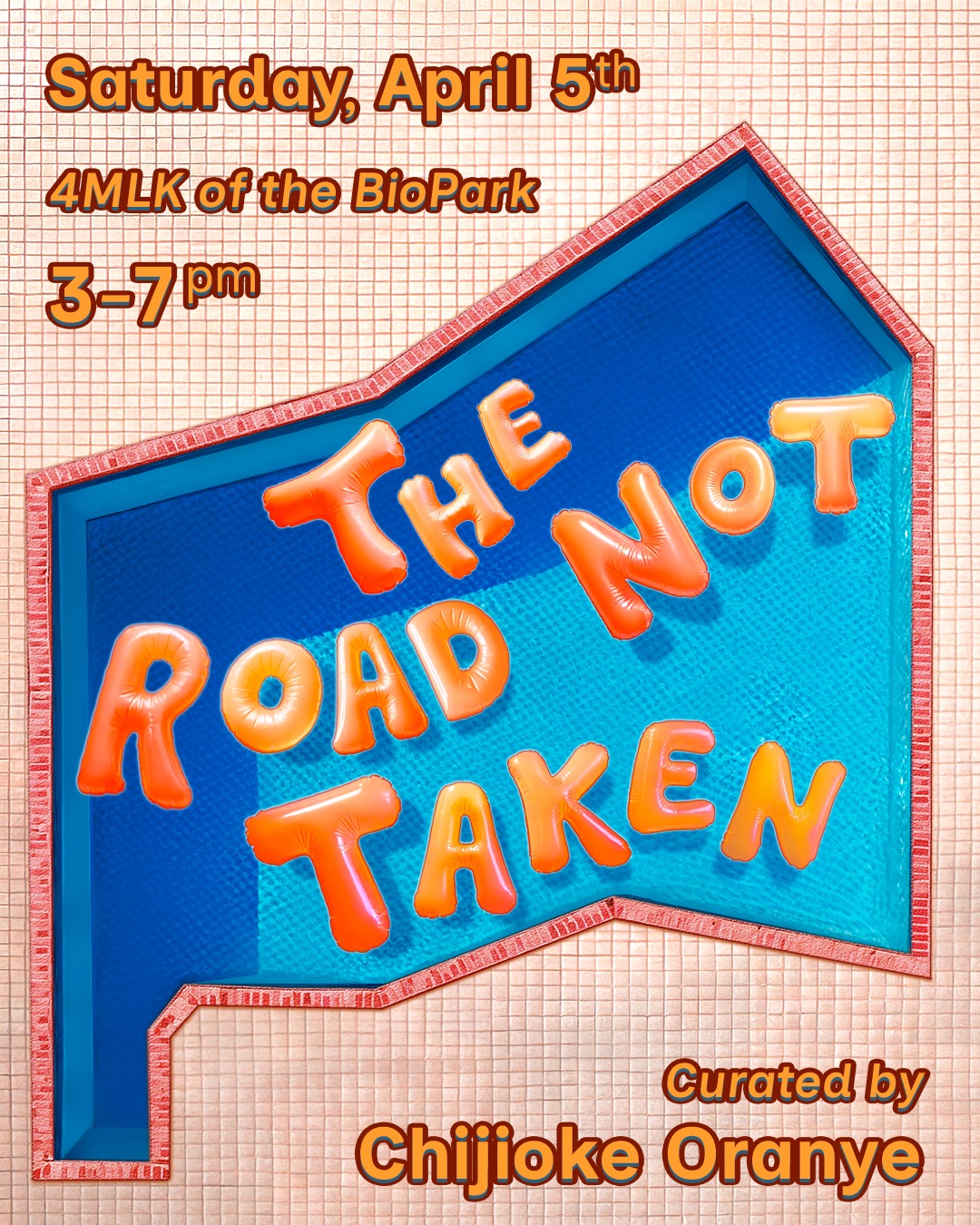
Oranye’s family migrated with the missionaries from Biafra and he, his brothers, mother and dynamic father made their way to one of the most prestigious campuses in the United States.
Opening remarks were made by Chuck Callahan, clinical professor of pediatrics at University of Maryland School of Medicine. His discussion covered the practice of “redlining” in particular in Baltimore.
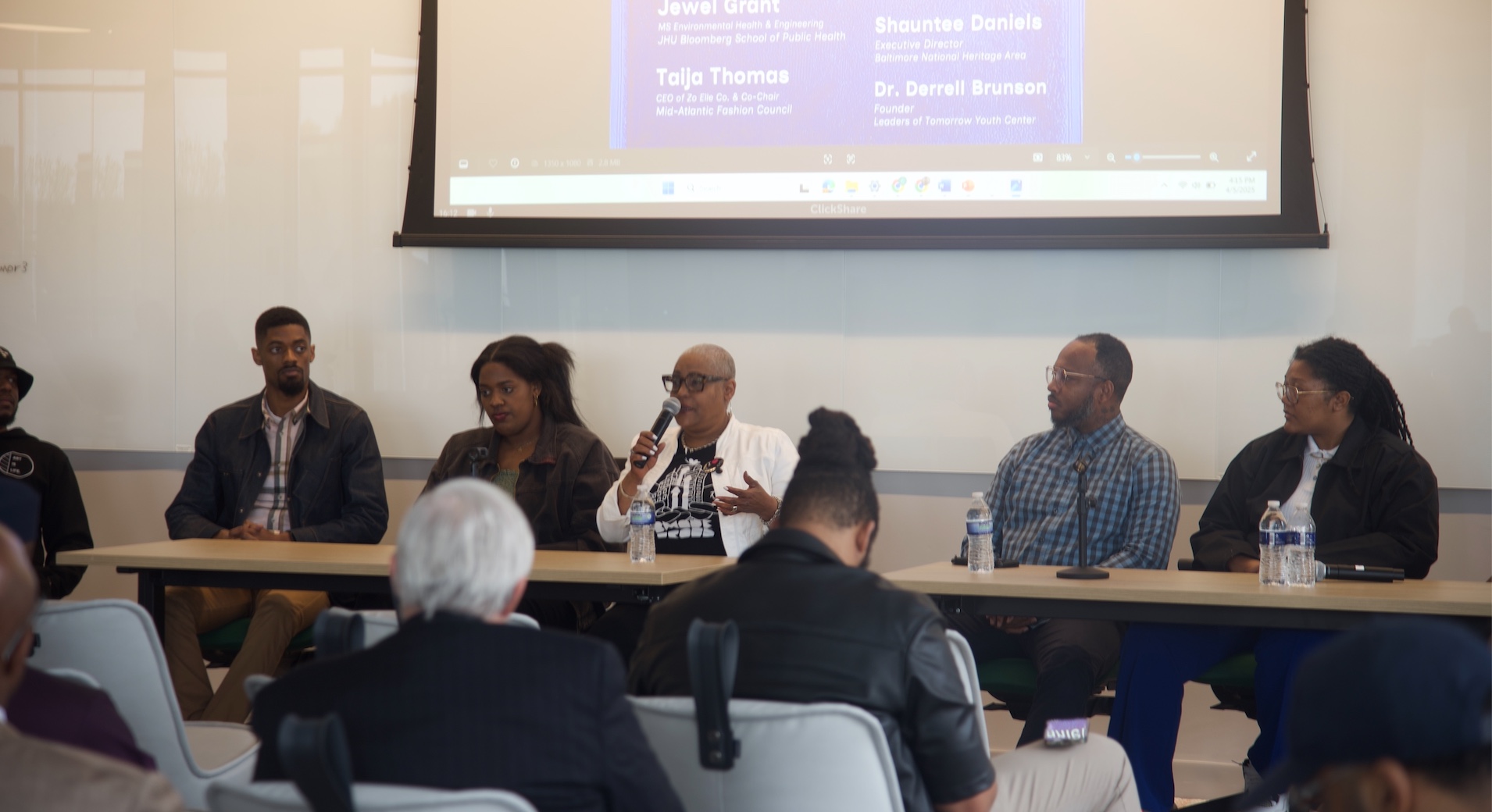
Panelists for “Where Is Ta-Nehisi Coates” were Naomi Winston, founder and CEO of Creative Representation Empire; Jewel Grant an MS in Environmental Health and Engineering; Taija Thomas, CEO of Zo Elle Co. & Co-Chair Mid-Atlantic Fashion Council; Dr. Drew Grant, Machine Learning Engineer at the Johns Hopkins University Physics Laboratory; Irvin Lewis, Business Developer, Express Employment Professionals; Shauntee Daniels, Executive Director, Baltimore National Heritage Area; Dr. Derrell Brunson, Founder, Leaders of Tomorrow Youth Center.
Dr. Drew Grant said that people of all ages, but particularly young people, should be given encouragement to pursue their life choices. He laid out his ideas of how to reach and guide those who want to grow.
“Everyone has their gifts,” he said. “Everyone can grow to a certain extent. I would talk to them about their strengths and ask them to constantly assess what you want to do.”
Naomi Winston said guiding the young people to find their own talents is all about balance, and young people can seek and find balance within the community.
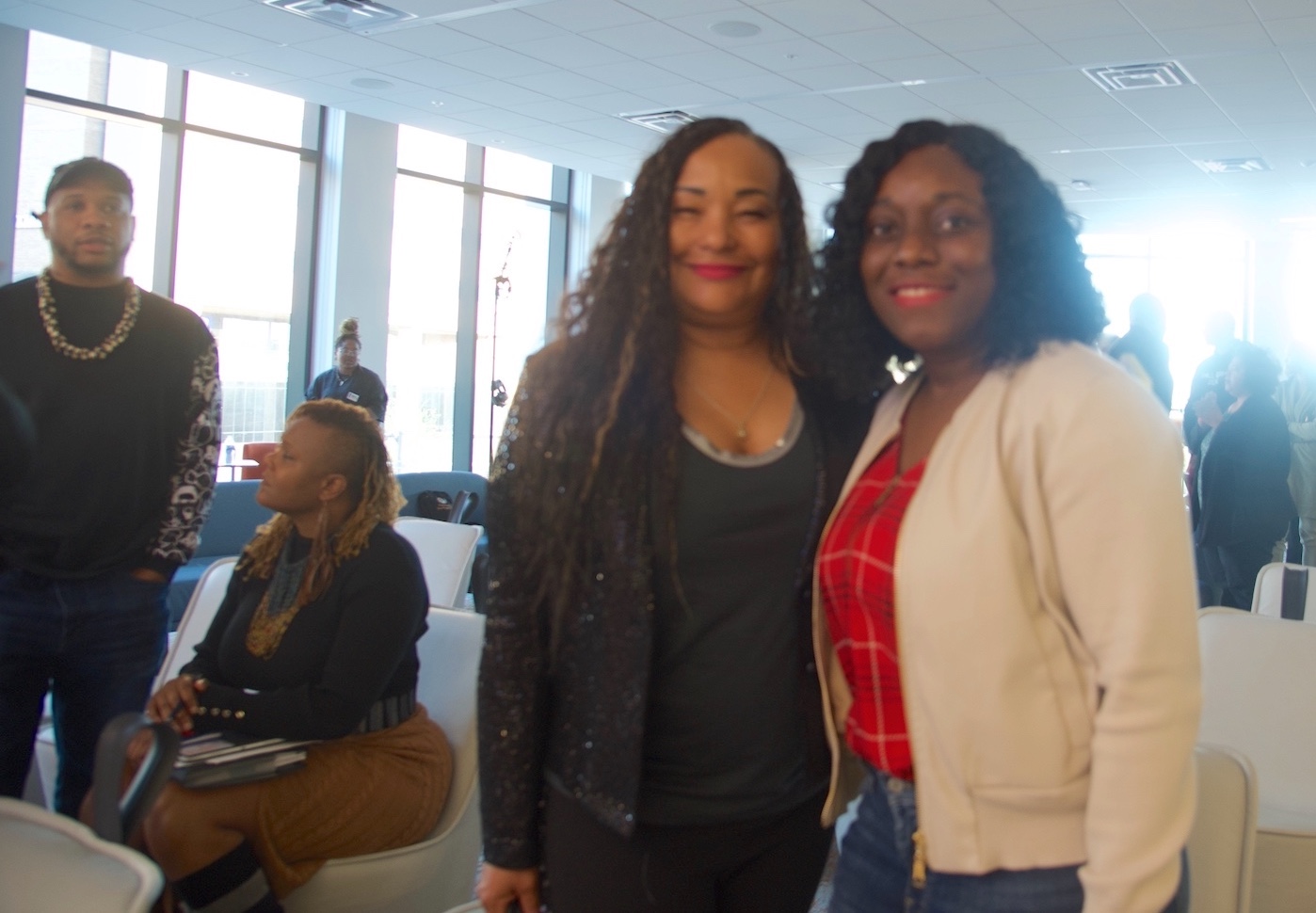
The panel, “Beyond Repair” covered a range of topics related to rehabilitation and recognition. Panelists were Dayvon Love, irector of Public Policy for Leaders of a Beautiful Struggle; Anthony Wazir Muhammad, Advisor for Maryland Parole Partnership/ ACLU of Maryland; the Hon. Jill P. Carter, Maryland State Board of Contract Appeals and former State Senator of the 41st District; Mustafa Madyun, Senior Advisor to the Secretary, Maryland Dept. of Juvenile Services and Willie Flowers, President of the NAACP of Howard County.
Flowers said power to the young people starts with self-esteem that comes from home and we should “Aggressively pursue young people and tell them how they’re the greatest.”
Hugging your children every day was another suggestion on how to help offset the reality of outside influences.
Hon. Carter said the legal system has many flaws when it comes to juveniles and we need to “do better by the children,” for instance, not charging them as adults and the stats bear out that a significant percent of children charged as adults come out of incarceration permanently harmed.
Carter said Maryland’s Juvenile Restoration Act, which allows minors who were sentenced as adults to ask a judge to reduce their sentence after they have served 20 years in prison, is an important step forward. It was enacted in 2021. The law also prevents juveniles from being sentenced to life without the possibility of parole.
The rate of recidivism in Maryland is also a topic politicians are slow to address, Carter said.
Flowers said putting youth on the road to success from a young age is a critical factor for the population. He offered up a most important mandate: “Teach children to read.”
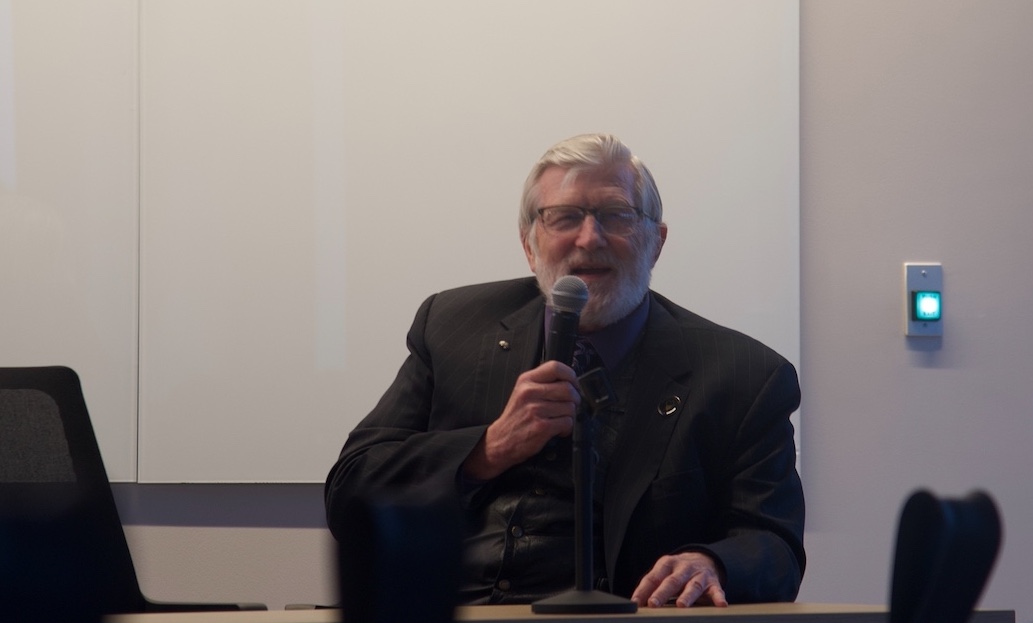
The third panel, “From Biafra to Baltimore” talked about the journey one takes in life and how that path can be gritty at times and glorious at others. Panelists were Achike Oranye, Divisional Director, People Encouraging People; Dr. Norbert Myslin, Professor University of Maryland School of Dentistry; Dr. K. Davina Frick, Professor and Former Vice Dean of Education at Johns Hopkins Carey Business School and Dr. Daniel Jay, Dean Emeritus, Tufts Graduate School of Biomedical Sciences.
